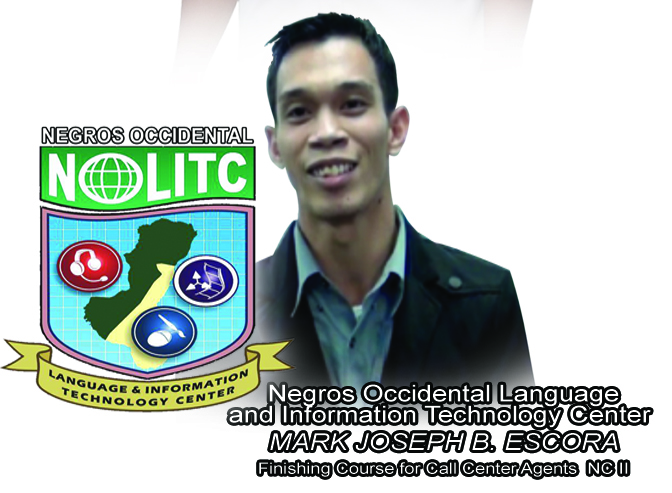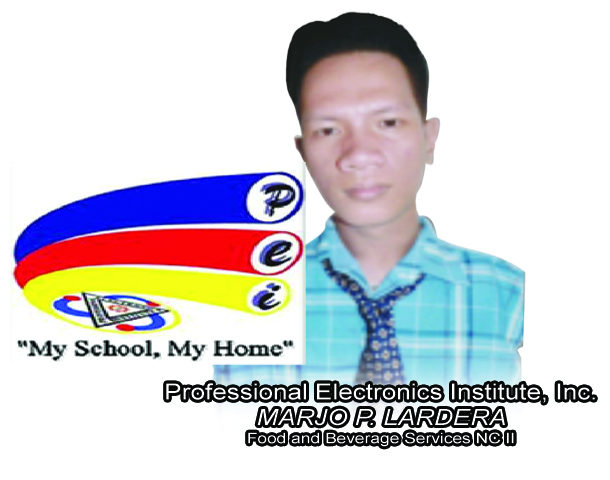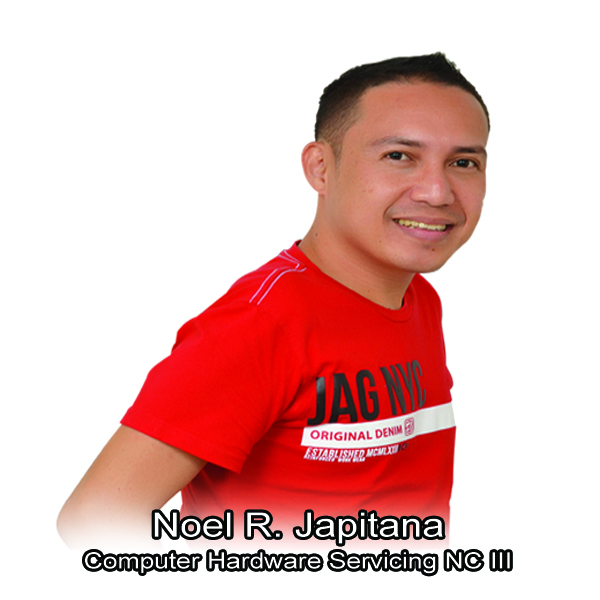12 May 2014
Noel Japitana, Marc Joseph Escora, and Marjo Lardera have become exemplars of valiant and successful effort to rise above crippling disabilities.
Japitana and Escora are both polio survivors while Lardera lost both arms.
Feted as among the finalists in this year's Tatak TESDA (Technical Education and Skills Development Authority) Video ?Making ? Contest, they have shown how it was possible -- through technical vocational? education ? and training (tech-voc?) -- to develop and hone their skills and make decent living out of it.
A native of Butuan City, Japitana was a polio victim, but persisted to study and establish his own business.
An aunt, who was based in the United States, helped him undergo an operation after high school so he could walk again. After being denied of a US Visa for five times, he was finally allowed to leave for America for the operation.
He could have stayed there and explore career opportunities, but Japitana chose to return home. Not wanting to be idle, he took a course in Computer Hardware Servicing, and was soon operating his own computer store.
His clients are steadily growing, and he attributed this to the quality service he provides and good interpersonal skills.
"TESDA paved the? way to my success. ... Even if I am a polio victim, I have proven that I could rise above the barriers," he said.
Japitana's video entry won the Best Video award in the Individual Category during the ?awards? night last May 1.
In the School Category, the Professional Electronics Institute Inc.? in Iloilo City narrated the heartwarming story of Lardera, who was armless, but learned to use his feet as he did electronics repair works.
Before taking up a tech-voc course, Lardera was repairing broken appliances to earn a living. He also paints, and has a little knowledge about carpentry.
"Several times, instead of repairing the appliances, they go?t busted because I lacked the technical know-how," he said.
When he heard about the scholarship offered at the Professional Electronics Institute Inc., he took the chance and was admitted to study Consumer Electronics especially designed for persons with disability.
"Now I have the skills as attested by the National Certificate ?(NC)?? I am holding. This ?is? my capital in offering my services," Lardera said.
He said that persons with disabilities "should not be ashamed and ?should ? work hard to discover their strength."
"TESDA is here to help us, and there are institutions that treat PWDs equally," Lardera added.
This year's Best in Video award in the School Category was bagged by the Negros Occidental Language and Information Technology Center (NOLITC) in Bacolod City, which featured the triumph of polio survivor Escora.
Born to a poor family, Escora did odd jobs such as being a jeepney barker at an early age of 12.
"I was bullied and discriminated because of my condition. Despite this, I never stopped dreaming. I worked hard and applied for a job in Panasiatic Solutions as a call center agent," he said.
Escora continued that he failed to get the job because he was just a high school graduate.
Opportunity came when TESDA, through the NOLITC, offered scholarship slots under its Training for Work Scholarship Program.
Escora enrolled in the Finishing Course for Call Center Agents.
He returned to Panasiatic and cl?inched the job. Few years after, he was promoted supervisor.
"My tech-voc training gave me hope and empowered me to get a stable job," he said.



Share this page





